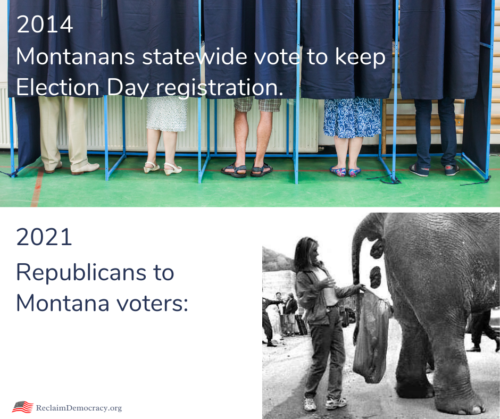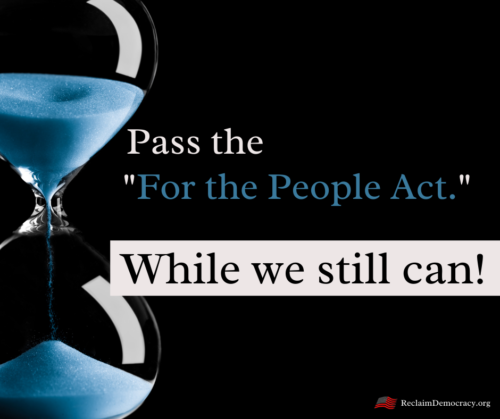Last updated February 11, 2023
Pro-democracy groups are urging people to support at least three essential bills in Congress:
- The Freedom to Vote Act (slated for reintroduction by May of 2023)
- The John Lewis Voting Rights Act
- The Washington, D.C. Admission Act, which would grant voting rights to D.C. residents by making the District a state (the Supreme Court has shut down every other option).
Each bill is truly necessary and urgent. We urge you to lobby your Senators for their immediate passage and do all you can to make your voice heard through other channels. Yet we are deeply concerned that the approach of focusing on legislative fixes alone does not capture the imagination of Americans and engage them to the degree we need. So, while we wholeheartedly urge passage of the three bills noted above, we also continue building support for a Right to Vote Amendment for three reasons:
- We need one, clear, compelling message that overwhelming numbers of Americans can support and convey concisely: every citizen must have a right to vote and have their votes count equally.
- While bills in Congress may change language, names, and even bill numbers, getting commitments from our legislators to support an affirmative right to vote will help hold them accountable to support all voting rights bills.
- Crucially, advances made solely through legislation can be undone by Congress and by courts. If a neutral person were to look at our 1965 Voting Rights Act, they would conclude we have strong protections that would make many provisions of current legislation unnecessary. Yet the Supreme Court stripped the Voting Rights Act of meaning in 2013 and has become more anti-democratic in subsequent years. A constitutional Amendment expanding civil rights has never been revoked.
If you have not yet contacted both of your U.S. Senators on these bills, please do so today. Let them know the anti-democratic filibuster cannot be used as an excuse to enable the denial of voting rights. You can always reach any U.S. Senator or Representative’s D.C. office via the Capitol switchboard: 202-224-3121. #NoMoreExcuses
See the links above to great bill summaries by the Campaign Legal Center and Brennan Center. For more on the Washington, D.C. Admission Act and all current Senate sponsors, see D.C. Statehood Coalition.
Additional Resources
50+ Ways to Disenfranchise and Suppress Voters


